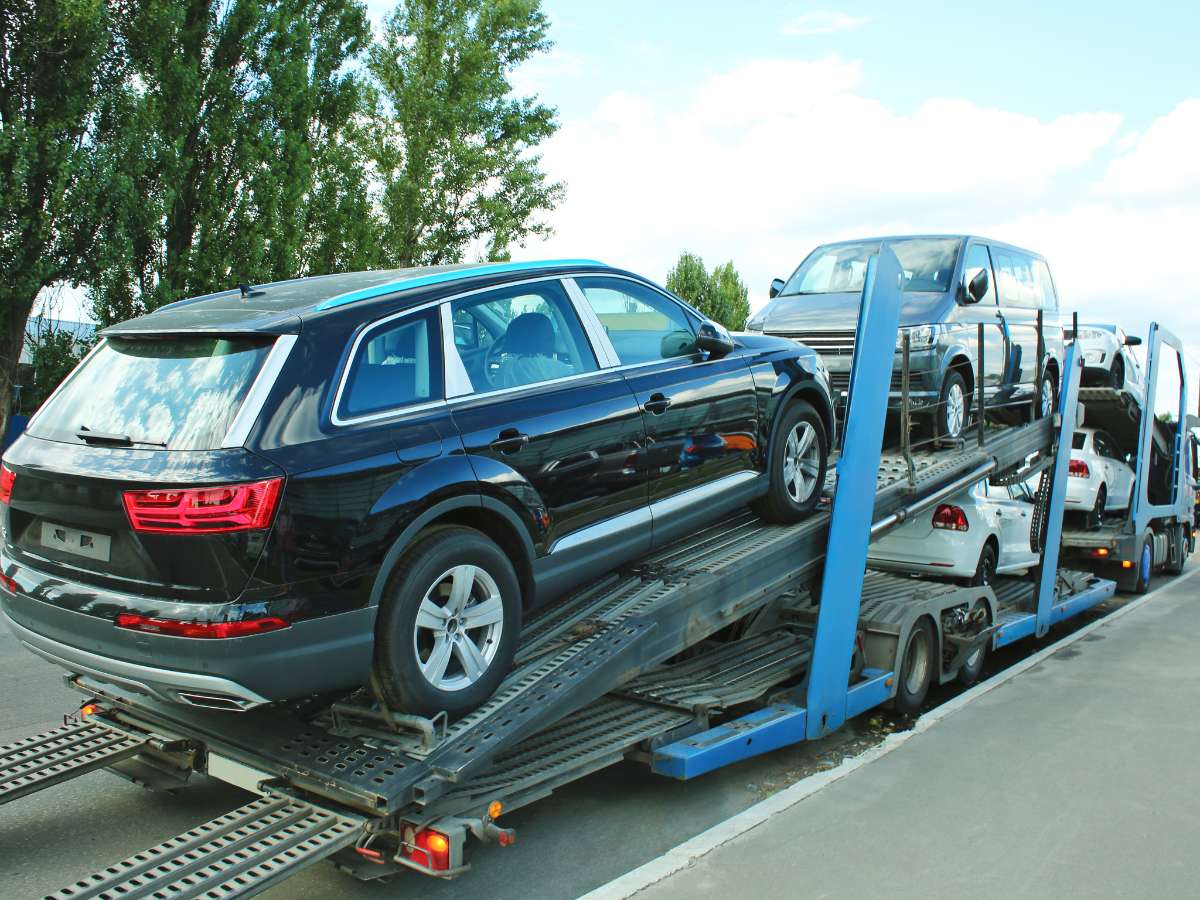Blog > Car transport
5 things to know before shipping your car

Get a Free Quote today for transport services and cut the costs by up to 70%
Are you shipping your car? Before you do, there are several important considerations to ensure your vehicle gets to its destination safely and on time. Whether shipping your car across the country or purchasing a vehicle online, shipping it can be a convenient solution. However, before choosing a transporter, it is essential to understand the process and what to expect. A smooth and successful car shipping process depends on several factors. Following are the five tips to ensure your vehicle arrives at its destination in the same condition it was when it left. Therefore, let’s dive in and explore the top things to remember when shipping your car.
Find the Best Services for Shipping your car
Before you begin the shipping process, finding a reliable car shipping service is essential. You can find car transport quotes from multiple carriers on the car transport marketplace, like Shipedi. Research the company’s reviews and customer ratings before committing to any service. Ask about their insurance policies and damage claims procedures if something goes wrong during transit.
Reading reviews is essential, especially If you’re unfamiliar with transporting your car. Reading reviews of previous customers will familiarize you with the reputation of a particular company. It is important to note that Shipedi only accepts bids from companies already reviewed by users, so you are sure there are already happy customers.
Understand Costs and Additional Fees
Car shipping costs vary depending on the transportation method and carrier you choose. Most services will quote you a base price, with additional fees for added services such as door-to-door shipping or hybrid vehicles. Ask if any extra fees, such as insurance and fuel charges, are included in the quote. Be aware that most auto shippers require full payment upfront before they can begin servicing your car.
Also, remember that going with the cheapest option can often lead to problems. Companies may have to cut corners on their processes and due diligence to offer affordable car transport services. As a result, your car could be at greater risk of damage during transit.
By finding a reliable car transport company, you can ensure your car will arrive at its destination safely and without any problems.
Make Safety Preparations
You should prepare your car for safe shipping before shipping it.
Check tire pressure and tread, fluids, brakes and other critical parts. The carrier does not assume liability for any personal items left in the vehicle, including electronics and aftermarket modifications. Clean out the dirt and dust from inside, including spare tires and tools. Disable the alarm system, headlights or other functions, so they will not turn on during shipment.
It’s important to double-check your insurance policies when shipping your car. Most car transport companies will have insurance, but checking with your carrier is always a good idea. As a result, you can protect your vehicle during shipping in case of damage.
Due to our commitment to your peace of mind, Shipedi verifies every transport company to ensure it possesses sufficient insurance coverage.
Pack the Vehicle Wisely
Vehicle owners should prep the car for shipping by packing items like spare tires, tools and all personal effects inside the car. Packaging all items in the vehicle is essential to prevent them from moving during transit. If you’ve chosen an open transport carrier, such as a flatbed or drop deck trailer, consider adding protective padding on the vehicle when applicable. The padding will further protect your car and reduce costs. Many carriers can provide materials for additional protection for your vehicle during transport, so it’s worth looking into if you have any concerns about its safety in transit.
Additionally, it’s crucial to document the condition of your vehicle before shipping it. Take photos and videos of the car from the outside and inside, including any pre-existing damage, scratches, or dents. This documentation will help you identify any new cracks that may occur during transit and can serve as evidence if you need to file a claim with your car transport service or insurance provider.
Double-check All Documents and Options Before Scheduling Pickup
Before you commit to scheduling pickup with a carrier, double-check that all documents and payment information are correct. Double-checking helps avoid last-minute accidents and costly delays. Fill out the bill of lading with the car’s make and model and any existing damage. All documentation must be correct since this is the only legal contract between you and the carrier. Additionally, drivers typically require a valid driver’s license before pickup, so have it ready when they arrive to pick up your car.
Getting the details first can go a long way to preventing various potential issues. Find out exactly how they will ship your car and whether that is the most suitable option. It is also a good idea to communicate openly with the transport company. Collecting all the information and providing the company with as much information as possible allows you to decide which company and transport method best suits your needs.
Conclusion
Shipping your car can be a convenient solution, but it’s essential to research and understand the process before committing to a transporter. Finding a reliable car shipping service, understanding the costs and additional fees, making safety preparations, packing the vehicle wisely, and double-checking all documents and options before scheduling a pickup can ensure a smooth and successful car shipping experience. Always remember to take photos and videos of your car’s condition before transport to serve as evidence in case of any damages. By following these five tips, you can feel confident that your vehicle will arrive at its destination safely and on time.
Get your free quote.
With these 5 tips, head to Get Quotes and choose a category. Publish your information and wait for your car transport quotes to fly in. Professional transport companies will bid on your job competitively. Consequently, the price will drop as each company competes for the job.












